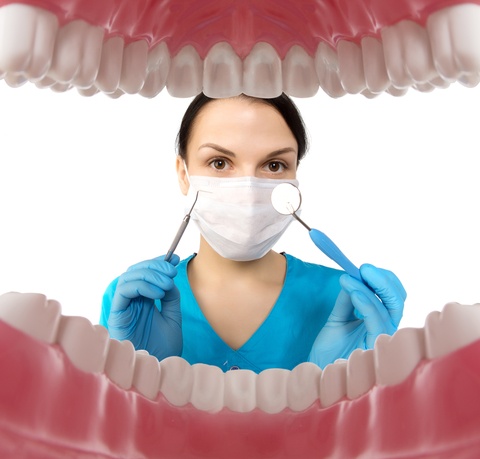Now is the Time to Maximize 2020 Dental Insurance Benefits
Many people jump into the new year with unused dental benefits. The National Association of Dental Plans records shows that only 2.8% of people with PPO benefits plans and flexible spending accounts exhaust them fully within a year. Current plans expire on the 31st of December, and do not roll over into the new year.
Whether you use a flexible spending accounts dental insurance plan, or a preferred provider organization (PPO), the calendar re-starts every 1st of January. Unused benefits of 2020 cannot be carried forward to 2021. Now would be a great time to make that visit to the dental office.
How Dental Insurance Works
The general rule applicable for dental benefits is the 100-80-50 rule. The rule is explained as follows.
- 100% coverage of preventive, diagnostic services including X-rays, teeth cleanings, and semi-annual checkups.
- 80% coverage on dental services such as root canals and dental fillings.
- 50% coverage on emergency operations.
However, you will need to confirm if your insurance provider has these limits.
Dental Benefit Plans
Paying for dental services out of pocket can be a very costly expenditure. Subscription to dental health coverage can go a long way to help you cover these costs at a reduced rate. The main benefit behind dental insurance is to cover part of your dental care expenses, especially unplanned issues that can arise.
Dental practices that belong to a panel of insurance providers have a contract to provide services at a standard fee. This provides you with a guarantee that out-of-pocket cost will be less costly than a walk-in treatment. The set fee is determined at the beginning of a financial year to easily monitor usage.
Most dental plans are employer-sponsored, while a few are available in the insurance marketplace. Even if it’s an employer-sponsored plan, a percentage of your salary is often deducted to pay for the premium costs. If you fail to use up the whole of your benefits, those funds go down the drain.
Flexible Spending Accounts
This is an arrangement that you set with your employer to receive reimbursement for your dental treatment expenses. Contributions into FSA plans are tax-exempt. However, this is a use-it-or-lose-it type of plan much like many other dental plans. If you don’t spend all your money by the end of the year, you lose it.
December 31st is the Deadline
Many people don’t know this, but nearly every dental insurance company has benefits with a deadline of the 31st of December. Some plans may end in the middle of the year, but these are not as common. Review your dental insurance plan documents to be sure. It’s your money (and your health) on the line.
In other words, if you and your family have any dental concerns, appointments, or treatments that are yet to be completed, don’t postpone. Call in at your dentist’s office before the year ends. Allow your hard work to bring brighter smiles for you and your loved ones.
How to Use Up All Your Dental Insurance Benefits
A dental health insurance plan covers many aspects of oral health. Do not use it only when you get a toothache. Preventative care is a critical part of oral wellness, and thankfully, you can visit the dentist as many times as you want before your insurance cap expires. The right preventative care approach can save you from paying deductibles for costly treatments come next year.
Understand Your Coverage
Dive into the details. Many plans that reset annually also have an annual maximum. Understanding your coverage can help you to plan and schedule your dental visits effectively. You can talk to your HR, or contact your FSA overseer for details on deadlines and covered treatments.

Talk to the Dentist
Dentists understand what is covered in every plan, and can help you max out the benefits before they expire. Speak to your dentist. You might find out that you (or your child) need teeth cleaning, dental veneers, or fluoride treatments.
Suppose you have a dental insurance plan that pays 100% of your preventive dental care with a max of $1700. That means that cleanings, X-rays, and veneers are covered in this, and you pay zero out of pocket costs for the treatment. You can see the dentist twice a year, and not come close to the capped amount.
Twice a Year is Not a Rule. It’s a Guide.
If you have dental problems or a history of dental problems, you can visit a dentist even four times a year. The ‘twice a year’ guideline is not a rule. Everyone has different and unique oral health needs. For instance, smokers are more susceptible to dental illnesses than non-smokers.
Recent studies have been focusing on the correlation between oral and general health. Dental health can pose a major risk to your overall health. Dental problems can quickly worsen medical conditions such as diabetes and heart disease due to the increased bacteria levels entering the bloodstream.
People with diabetes have a heightened risk of developing gum and dental diseases. Chronic gum disease particularly makes diabetes hard to control. Gum infections increase insulin resistance, which then messes up blood sugar regulation.
And if your family has a medical history of coronary illness, it’s critical to consider that periodontal disease and coronary disease are tied at the hip. Ensuring perfect oral health through regular dental checkups is good for your heart.
Failure to use up your dental benefits could increase your risk of dental disease while also elevating your vulnerability to diabetes and heart disease. There is too much at stake.
Even if you don’t fall in the high-risk group, when you postpone your dental appointment, any existing dental conditions may worsen such that you end up paying more out-of-pocket to treat them. If tooth decay remains unnoticed, the eventual result may be an expensive root canal. That will hurt your wallet. Several dental plans cover preventive dental visits, regular exams, and cleanings at no additional cost. Ensure you engage your insurance provider to understand the terms concerning preventive visits.
In a Nutshell
Most dental benefits expire at every end of the year. Failing to use your benefits is not only bad for your finances, but it is also bad for your health in many ways. Visit your dentist before the year ends.
The post Use Your Unused Dental Benefits Before They Expire At Year End appeared first on GQ Central.

Comments are closed